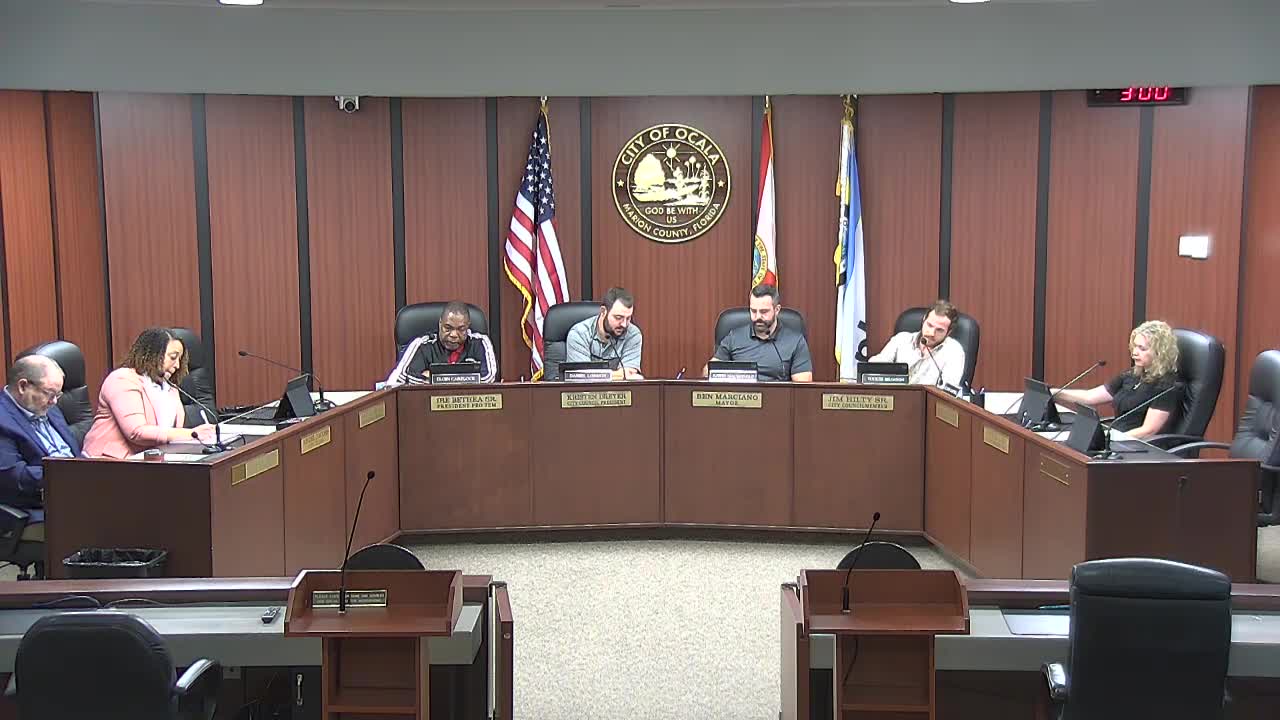Commission approves code amendment to allow churches on arterials in M-1 zoning with conditions
Get AI-powered insights, summaries, and transcripts
Subscribe
Summary
The Planning & Zoning Commission approved a citywide code amendment (COD2053) permitting churches and places of worship in the M-1 light industrial zoning district only on major and minor arterial roadways, subject to supplemental regulations and special exceptions for associated private schools or daycares.
The City of Ocala Planning & Zoning Commission approved a code amendment (COD2053) to permit churches and places of worship in the M-1 light industrial zoning district on major and minor arterial roadways, subject to supplemental regulations and requirements.
Emily Johnson of the City of Ocala Growth Management Department said the change responds to property owners along corridors such as State Road 464 (Southwest 17th Street) who sought flexibility without isolated spot rezoning. “The ordinance amends the permitted uses chart ... to reflect churches slash places of worship as permitted in the M-1 Zoning District subject to the supplemental regulations,” Johnson said.
Staff initially recommended removing medical/dental offices from the proposal after confirming that the existing definition for medical and dental laboratories already encompasses those uses, but worked with the applicant to narrow the amendment to churches and places of worship and to include safeguards addressing pedestrian activity, circulation and parking. The amendment requires that any private school or daycare associated with a church must obtain a special exception; private elementary or secondary schools otherwise are not permitted in M-1.
Staff also reviewed the change against Florida law enacted as chapter 2025-190 (formerly referenced as Senate Bill 180), which took effect July 1, 2025. Johnson told the commission the proposed amendment is not more restrictive or burdensome than current rules and does not conflict with the property-rights element of the comprehensive plan.
Agent (address given as 1531 Southeast 30 Sixth Avenue) told the commission the change is citywide, not site-specific, and that the amendment would allow uses similar to examples already present along arterial corridors. The agent said the owner of a building similar to Armstrong Construction’s planned to use front-office space for medical offices and rear space for a church but that spot rezoning would not be desirable.
Commissioners expressed that the amendment was well-worded and appropriate for arterials. A motion to approve COD2053 passed on a roll call vote.
Votes at a glance: COD2053 — approved (roll call recorded: Mr. McDonald: Aye; Mr. Branson: Aye; Mr. London: Aye; motion carries). The motion recorded no named mover or seconder in the transcript excerpt.
The amendment will allow churches on major and minor arterials within M-1 where supplemental regulations and special-exception requirements for schools/daycare are met; further site-level permitting and special-exception review will apply to any specific proposal.
